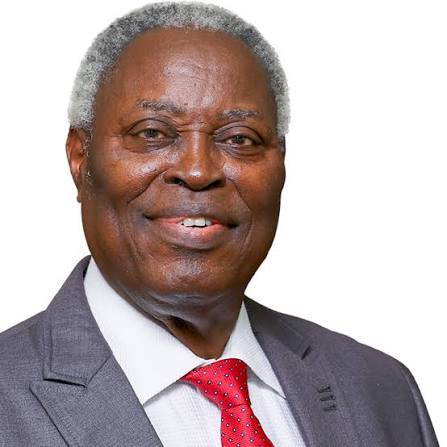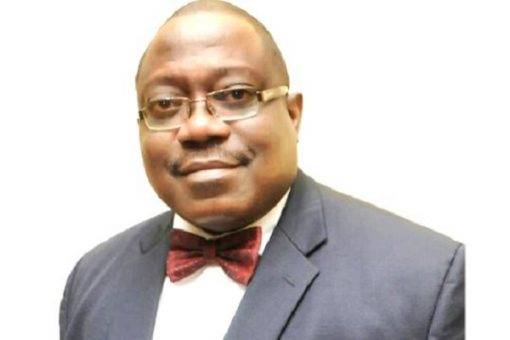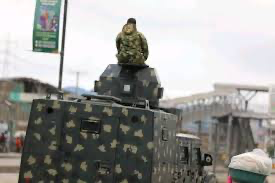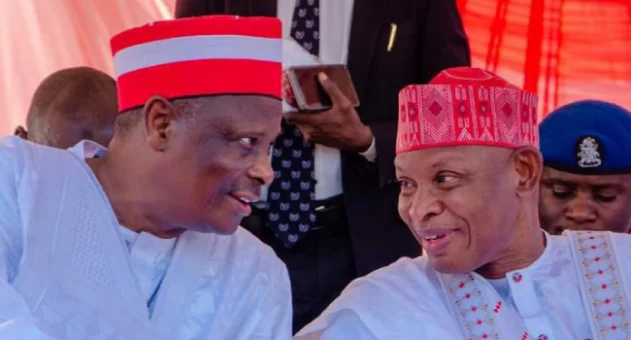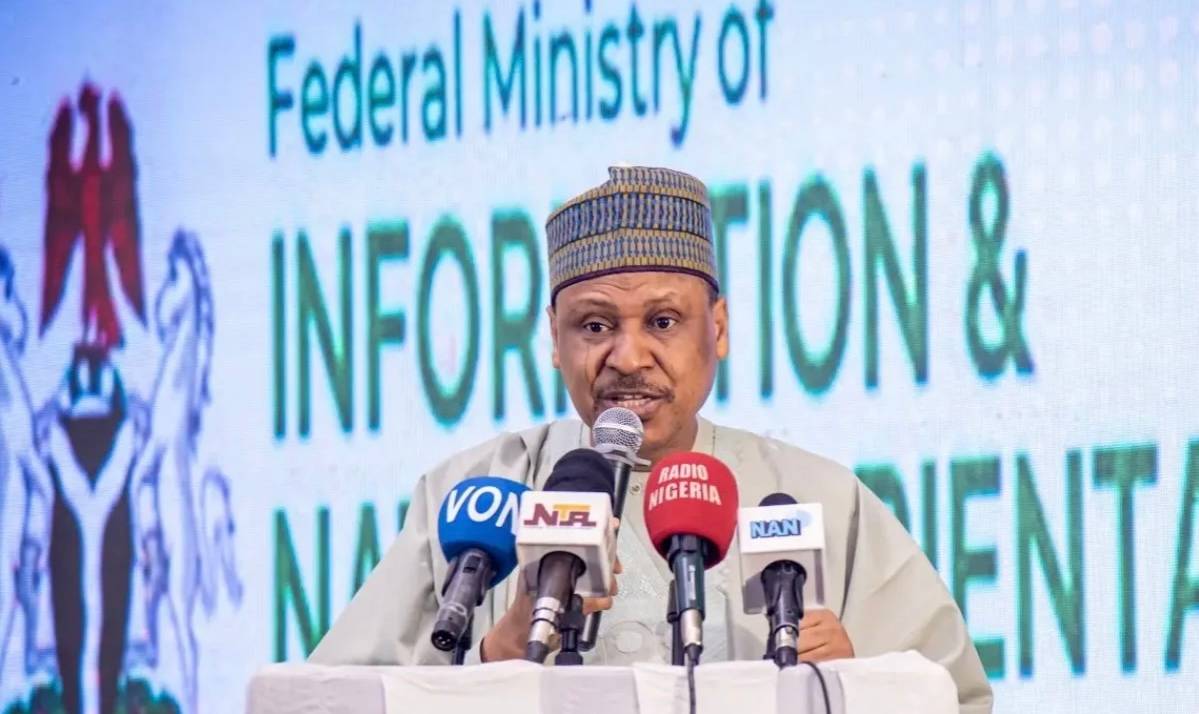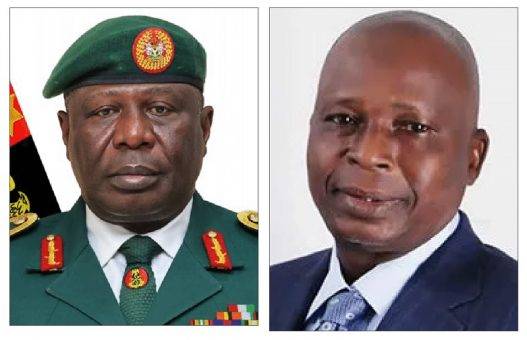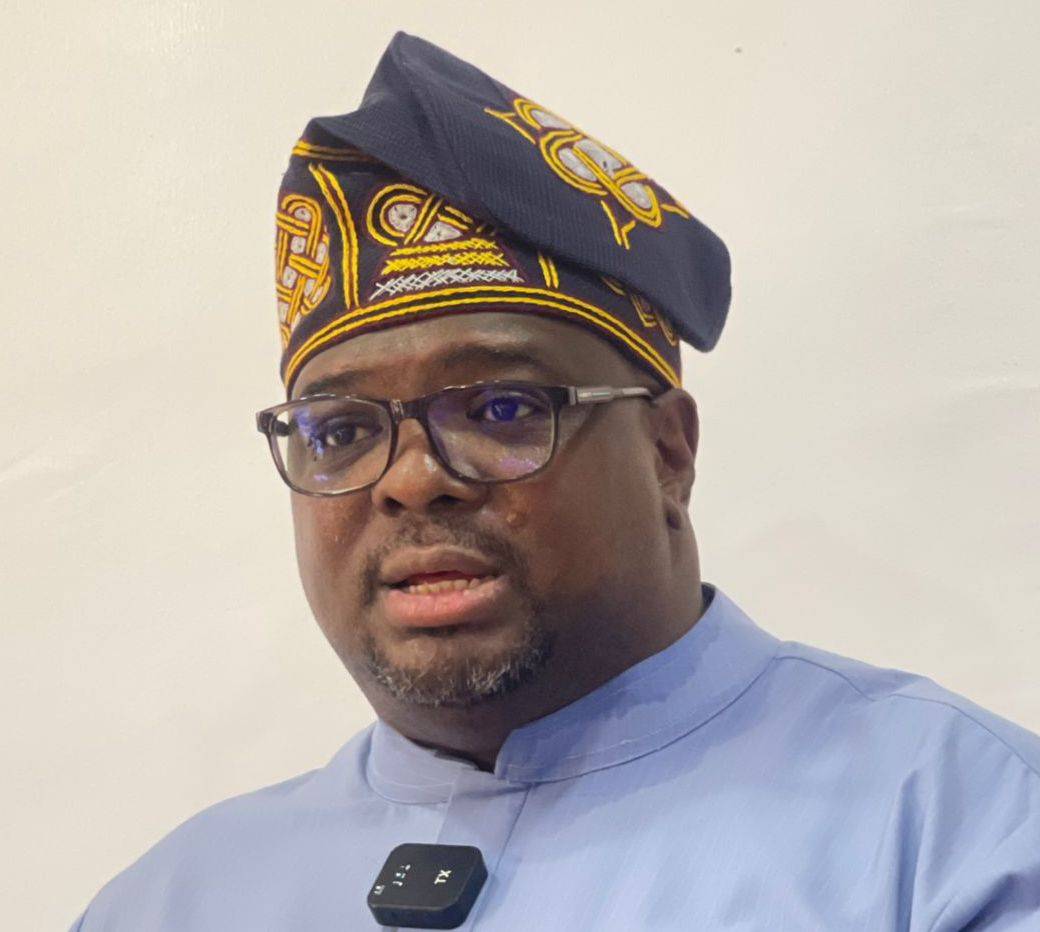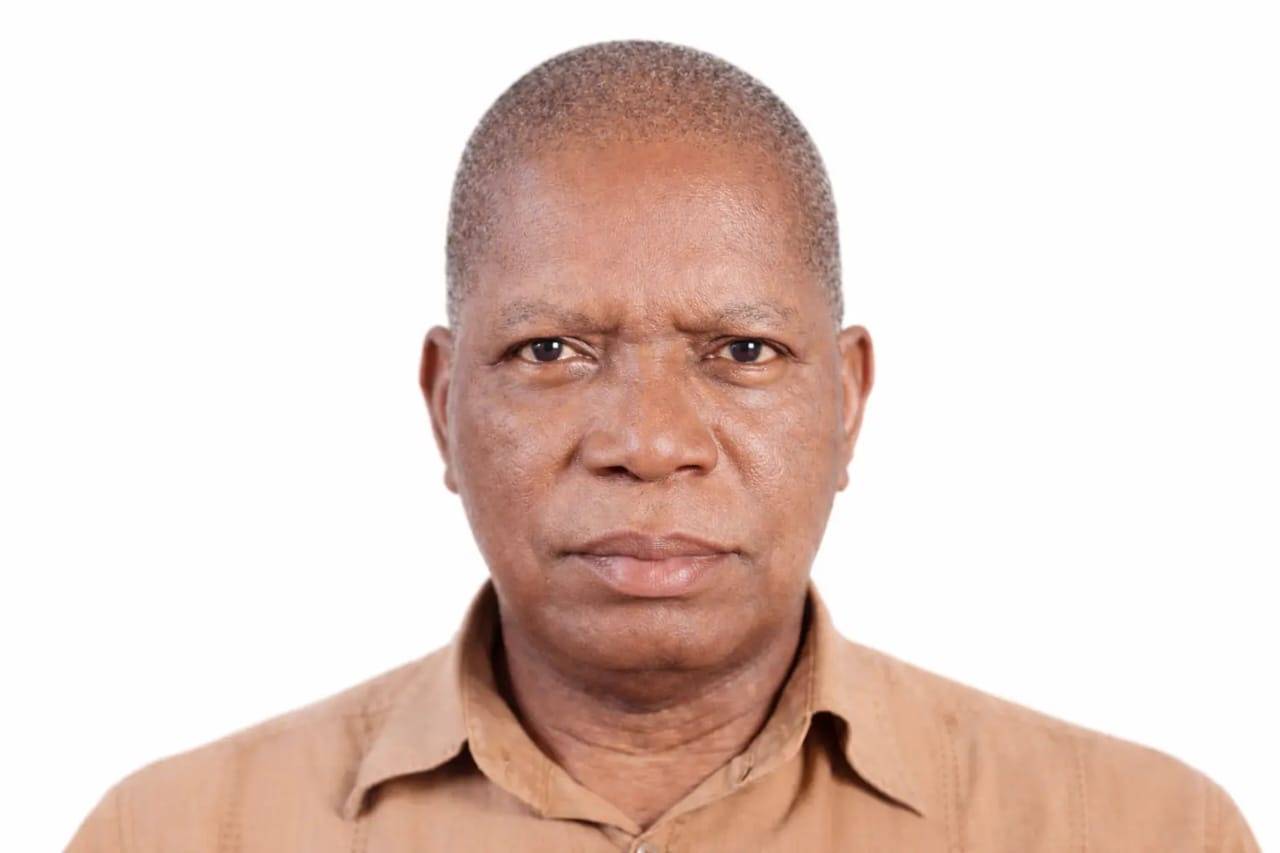
By Segun Ayobolu
When the group of eminent Nigerian statesmen and leaders known as ‘The Patriots’ visited President Bola Ahmed Tinubu at the Aso Rock Villa in Abuja recently, the Chief Emeka Anyaoku-led association urged the President to pursue as a matter of urgency the drawing up of a new constitution for the country predicated on a fundamental restructuring of the polity. In response, the President did not disagree with his August visitors but said the immediate priority of his administration was to see through its far-reaching economic reforms to elevate the country to a new pedestal of productivity and prosperity.
Speaking this week as the Chairman at the launch of a new biography of renowned academic, diplomat, and administrator, Professor Jide Osuntokun, Chief Anyaoku, a former General Secretary of the Commonwealth, reiterated the view that the extant 1999 Constitution is at the root of Nigeria’s protracted multidimensional crises. Unless there was a fundamental change from the constitution and a return to the regional constitution of the first republic, which he considered more in tune with federal practice and the country’s complex cultural realities, Chief Anyaoku was of the view that not even angels presiding over Nigeria would succeed in extricating her from the current existential predicament.
Of course, this point of view ignores the fact that the much romanticized 1963 Constitution could not prevent the massive corruption, political intolerance, rabid ethnicity, divisive regionalism, blatant election rigging, and brazen disregard for democratic norms that resulted not just in the collapse of the first republic in January 1966 but ultimately led the country down the slope of destructive civil war between 1967 and 1970.
The ills we complain about in Nigeria today under the current Constitution were thus already prevalent in the first republic even if they have naturally expanded in scope and intensity in post-first republic Nigeria including this dispensation since 1999. It would thus appear that the more fundamental challenge we confront is that of a perverse and dysfunctional political culture which will sabotage and undermine any constitution no matter how elegantly and meticulously crafted.
Just as the change from the parliamentary to the presidential constitution in 1979 did not eliminate the negative behavioral traits of political actors that continue to taint Nigeria’s politics and jeopardize her development, the adoption of a new constitution is no magic wand to usher in the Eldorado that idealists dream of.
In any case, while it is easy to advocate the abrogation of the 1999 Constitution, there is no reasonable consensus on what type of legal framework and attendant political structure should replace it. That is partly why this column agrees with the Tinubu administration’s decision to prioritize its ongoing restructuring of the economy to create the material basis for a more stable and equitable political order rather than squander valuable time and resources on constitutional engineering adventurism with indeterminate and unpredictable outcomes.
Central to the administration’s economic reform agenda are the twin policies of removal of fuel subsidy as well as the merger of hitherto existing parallel exchange rate markets, both of which had facilitated the criminal enrichment of a privileged few to the detriment of the public good. Unfortunately, these policies have occasioned existential hardships for millions of Nigerians arising largely from inflationary spirals affecting essential food items, essential drugs and healthcare as well as fuel, transportation, electricity and other costs among others.
Writing on the current hardships attendant on these reforms, a popular media scholar and columnist recently quoted at length President Tinubu’s arguments in opposition to fuel subsidy removal in 2012 when he was the country’s foremost opposition leader. He averred that nothing had changed fundamentally to warrant the President now implementing the same policy on assuming the country’s apex leadership position. But the Nigeria of 12 years ago is not that of today. As of 2012, the country was earning far much more from oil revenues while also exporting amounts of crude oil far in excess of today’s crude oil productivity levels. Unfortunately, such revenue bounty was not leveraged on to make the country’s comatose refineries functional, rehabilitate and expand critical infrastructure, promote economic restructuring and diversification or enhance self-reliance in diverse sectors.
During the campaigns for the 2023 presidential elections, there had been a consensus across partisan political lines that the fuel subsidy in particular must go. The presidential candidates of the major political parties all committed themselves to the removal of the subsidy. This decision was informed among others by the reality of substantial revenue shortfalls, soaring indebtedness, unsustainable debt-servicing to revenue ratios and dearth of funds for the provision of critical infrastructure without which there could be no meaningful economic recovery of future development.
Many economic analysts contend that the administration’s courage in making hard policy choices that successive administrations had refrained from is already yielding positive dividends. These include the attraction of foreign investments worth over $30 billion in less than two years, near-tripling of the revenue earnings of the various tiers of government, achieving a favorable trade balance of N6.5 trillion in the second quarter of 2024, growing the country’s foreign reserves to over $40 billion, reducing debt-servicing to revenue ratio from over 90% to about 60%, doubling the minimum wage from N30,000 to between N70,000 and N85,000, increasing the nation’s daily crude production by one million barrels to 1.8 million barrels per day and the Nigeria Customs Service (NCS) collecting total revenues of N5.97 trillion from January to November 12, 2024 surpassing its 2024 target of N5.07 trillion. All of these are indicative of an economy gradually emerging from distress with positive signs for the future despite current excruciating hardships.
However, without losing focus of its long-term economic growth objectives, the PBAT administration must also treat as an emergency the high poverty levels that have become a threat to social harmony and national stability. It is obvious that the removal of fuel subsidy has negatively impacted more sectors than was envisaged by many before the implementation of the policy. One of the sectors most seriously affected with painful consequences for millions of Nigerians is agriculture. Prices of food staples such as yam, rice, maize, beans, eggs, poultry, fish, vegetables, pepper, tomatoes and groundnut oil among others have soared beyond reach.
While experts predict bountiful harvest in the near future given current policy initiatives, it is believed that more concerted efforts can be taken to crash food prices in the short term. The food crisis can be utilized as an opportunity to mobilize and organize idle youths back to the land across the country to engage in massive food production. A few months ago, the Southwest Governors Forum announced with fanfare that states in the region would work in concert to boost agricultural productivity and food availability.
Unfortunately, not much more has been heard of this effort despite the abundant fertile land available for farming that was the mainstay of the region’s economy in the first republic.
Incidentally, the First Lady, Senator (Mrs) Oluremi Tinubu is showing an example for others to follow through various programmes of her Renewed Hope Initiative to promote and support farming among women and youths. Again, the impact of the waiving of duties on the importation of some essential food items is yet to be felt and the appropriate authorities must investigate why this is so with a view to expediting action on achieving concrete results in this area. Urgently boosting agricultural productivity and food availability to drastically bring down prices both through local farming and imports is key to decisively tackling the larger challenge of poverty.Considerably reduced food prices which more people can buy will minimize the need to resort to palliatives distribution which with few exceptions reach only a negligible number of people.
Again, given the demonstrated impact of fuel prices across the economy, the NNPCL cannot continue to offer excuses on why domestic refineries under its control remain dormant while the Dangote Refinery, on which so much hope was invested, is having minimal impact on fuel prices despite coming on stream. It is critical to find out why the initiative of paying for crude supply in Naira and the stoppage of all importation of refined petroleum as announced by the NNPCL is not being felt both in terms of fuel prices and pressure on the exchange rate. Perhaps the NNPCL and the petroleum industry as a whole is in need of the kind of forensic auditing carried out at the Central Bank of Nigeria (CBN), an exercise that has eliminated opacity, enhanced transparency and minimized opportunities for corrupt enrichment at the apex bank.
When talking about poverty alleviation and the hardships in the country, the focus tends to be mostly on the federal government and the President in particular. While accruals to the states from the Federation Account have more than doubled since the removal of fuel subsidy, most of the sub-national units of government are not making the desired impact in terms of meaningfully alleviating the poverty of their people. True, some have argued that the rate of inflation and devaluation of the Naira have eroded much of the value of the Naira revenues to the states. Yet, the National Economic Council (NEC) which is a critical economic policy making body to which all governors belong can do much more in terms of peer review of the governors and ensuring improved service delivery to their people in consonance with the quantum of revenue available to them.
Despite the empowerment of states to generate and distribute electricity within their domains for instance, why are efforts not being exerted in this direction by more states apart from Lagos given the key role of electricity supply in mitigating poverty levels? One of the positive developments under the PBAT administration is the resurgence of a body like the Federal Competition and Consumer Protection Commission (FCCPC) under the leadership of Mr Tunji Bello to curb price fixing, price gouging and practices injurious to fair competition. The unethical antics of unscrupulous middlemen also contribute to the unrealistically high prices of many commodities.


